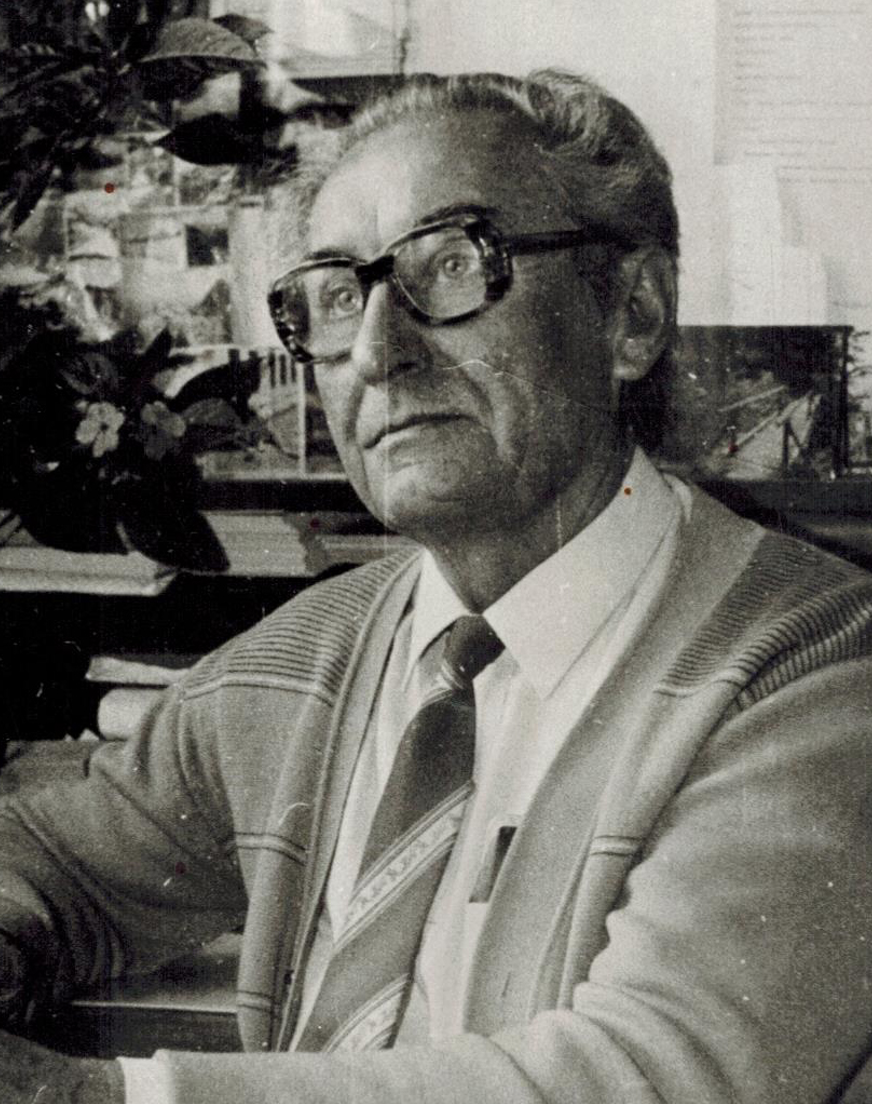All-Russia Research Institute for Agricultural Microbiology

He was born on November 17, 1921 on the farm Frolo-Egorovo in the Romanovsky district of the Rostov region in a wealthy peasant family who had horses, cows, sheep and a large plot of land. N. V. Kandybin's father was repressed and shot as a well-to-do peasant during collectivization.
After graduating from high school, he was mobilized into the Soviet Army. In August 1941, he was wounded and captured. He was in three concentration camps: Auschwitz, Stuttgart, Majdanek. Escape attempts were unsuccessful, the fugitives were intercepted each time by local residents and returned to the Gestapo. The prisoner's camp number remained on Nikolai Vasilyevich's forearm until the end of his life.
After his release, he continued to serve in the Soviet Army. He participated in the Great Patriotic War; for personal courage and bravery he was awarded the medals "For Bravery", "For the Victory over Germany". After demobilization in 1947, Nikolai returned to his mother's village with a bag of flour and enrolled in courses for deratization technicians at the Zimovnikovskaya anti-plague station in the Rostov region.
In 1949 he graduated from the Institute of Applied Zoology and Phytopathology of the Ministry of Agriculture of the USSR in Leningrad. In 1955 he graduated from the Herzen State Pedagogical Institute. In the 50s, Nikolai Vasilyevich successfully worked in the field of deratization at the Zimovnikovskaya anti-plague station, in the Leningrad regional Sanitary and Epidemiological station, where he held the positions of biologist, acting head of the laboratory and head. the professional department.
In 1960, Nikolai Vasilyevich entered the graduate school of ARRIAM and in 1963 defended his PhD, and in 1974 – his doctoral dissertation. In 1978, he was awarded the academic title of professor.
Since 1963, he worked as the scientific secretary of ARRIAM, and since 1968 – Deputy Director of Science at ARRIAM. At the same time, he led the work on microbiological control of insects and rodents and from 1966 to 2010 headed the Laboratory of Microbiology and pathology of rodents and insects.
Over the years of scientific work, Professor Kandybin has made a significant contribution to the development of the theoretical foundations of microbiology and pathology of rodents and insects, the microbiological method of plant protection and agricultural microbiology, as well as the use of biological products in the practice of combating harmful insects, mites, rodents and phytopathogens.
Under his leadership, the laboratory has developed environmentally friendly biologics that have become widely known in Russia and other countries: Bactorodentide – to combat mouse–like rodents; Bitoxibacillin - a broad–spectrum drug to combat dangerous mass pests, phytophagous insects; Bactokulicide - a biolarvicide to combat blood-sucking mosquitoes and midges, as well as rice and champignons mosquitoes; Actinin is a series of biological insecticides highly effective against spider mites, Colorado potato beetle and other dangerous pests; Bacicol is a drug with complex activity against pests and diseases. The use of biopreparations created by N.V. Kandybin and co-authors makes it possible to obtain high-quality and safe agricultural products, reduce pollution of agricultural landscapes and water resources with pesticides and thereby improve the state of the environment and quality of life.
Nikolai Vasilyevich created a large scientific school for the study and practical use of microorganisms and their metabolites in the fight against harmful organisms. Over 20 PhD and 2 doctoral dissertations were defended under his leadership. His students successfully work in all regions of the Russian Federation and abroad.
For many years, N. V. Kandybin carried out scientific leadership and participated in a number of priority scientific programs: "Microbial preparations", "Biopesticides", the international project "Biosecurity", numerous programs on GNTP, on industry programs of RAS, programs of the International Organization for Biological Control (MOBB). The technologies developed by him for the production and use of biological products have been implemented both in large-tonnage and in regional low-tonnage production of microbial products.
Professor Kandybin is the author of over 300 scientific papers, including the monographs "Bacterial control of rodents and insects" (1989) and "Microbiocontrol of insect numbers and its dominant Bacillus thuringinsis" (2009). He was a member of the dissertation councils of VNIISHM and the Institute of Plant Protection. For a long time he headed the Permanent Commission on Microbiological Plant Protection Products at the Eastern Palearctic Regional Section of the MOBB, headed the interdepartmental Commission on Microbiological Plant Protection Products at the Russian Agricultural Academy.
Large-scale production of drugs created under the leadership of N. V. Kandybin was carried out by the Berdsky Plant of Biological Products (Novosibirsk). The developments of Professor N. V. Kandybin and co-authors found application in practical work, were awarded diplomas and medals of VDNH and other prestigious exhibitions. N. V. Kandybin was awarded the medal "Veteran of Labor", as well as departmental medals and certificates of honor. In 1987, he was awarded the State Prize of the Ukrainian SSR. For outstanding contribution to the development of the theoretical foundations of microbiology and plant protection methods in 2002. By decree of the President of the Russian Federation, Professor N. V. Kandybin was awarded the Order of Honor. He was awarded a commemorative badge by the administration of the Pushkin district in honor of the 300th anniversary of Tsarskoye Selo.
The bright memory of the remarkable microbiologist Nikolai Vasilyevich Kandybin is carefully preserved at ARRIAM, where he worked for about half a century.
Authorship: "The staff of Laboratory No. 7 of the Federal State Budgetary Educational Institution ARRIAM, Professor I.A. Arkhipchenko, Professor of the Russian Academy of Sciences A.A. Nizhnikov"